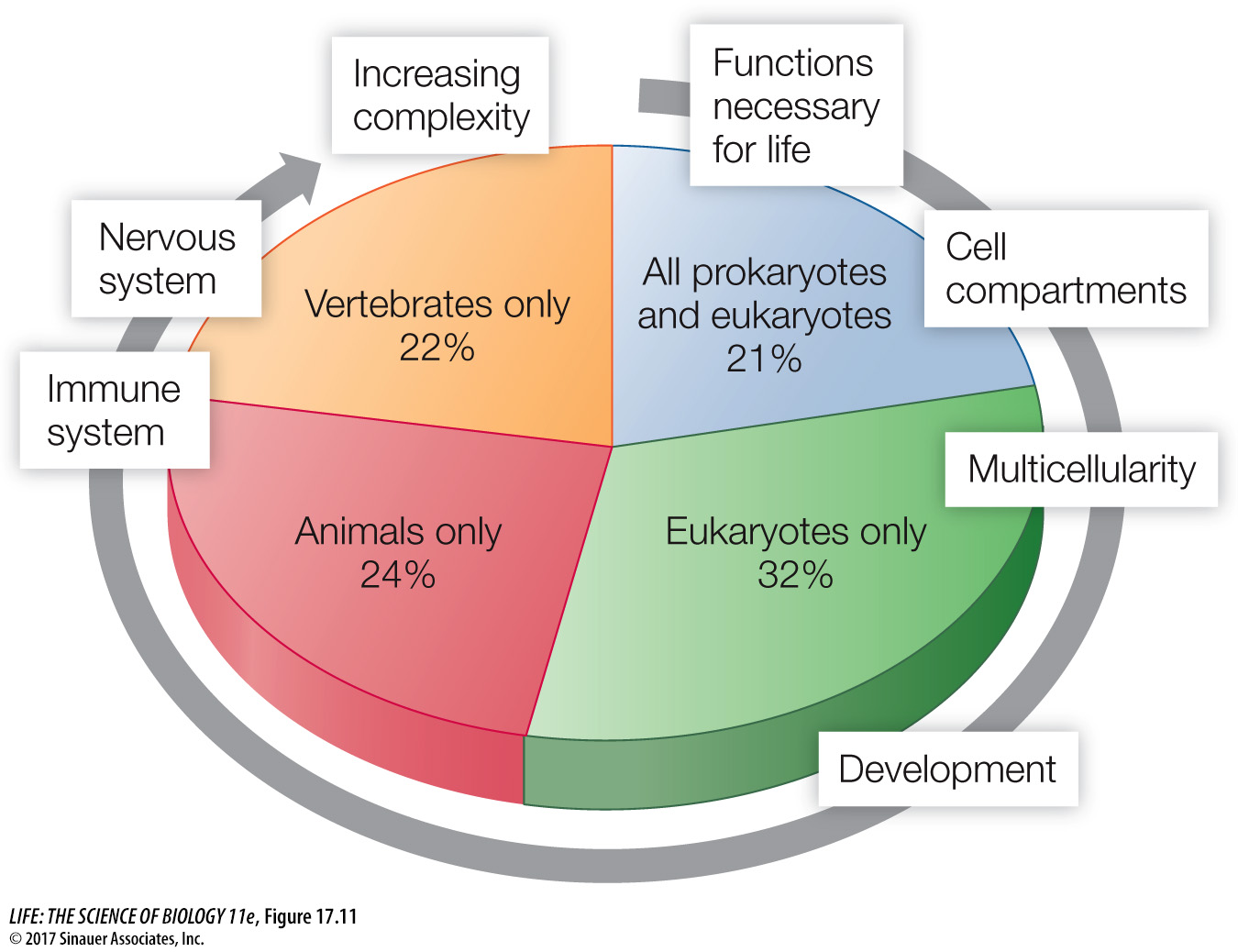Comparative genomics reveals the evolution of the human genome
374
Comparisons among sequenced genomes from prokaryotes and eukaryotes have revealed some of the evolutionary relationships among genes. Some genes are present in both prokaryotes and eukaryotes, others are only in eukaryotes, and still others are only in animals or only in vertebrates (Figure 17.11).

The genomes of various other primates, including all of the great apes, have now been sequenced. The search is on for a set of human genes that differ from those found in other primates and that make us unique. Chimpanzees are our closest living relatives, sharing nearly 99 percent of our DNA sequence. About 500 protein-
*connect the concepts How comparisons of primate and human genomes have refined our understanding of human evolution is discussed in Key Concept 32.5.
Other clues about “human” genes have come from sequencing the genomes of ancient human relatives. An international team of scientists led by Svante Pääbo at the Max Planck Institute for Evolutionary Anthropology in Germany has extracted and sequenced DNA from the bones of Neanderthals, who lived in Europe up to 50,000 years ago. The entire Neanderthal genome has been sequenced. It is more than 99 percent identical to our human DNA, justifying the classification of Neanderthals as part of the same genus, Homo.
Comparisons of the human and Neanderthal genomes are ongoing and have already revealed several interesting facts:
The gene MC1R is involved in skin and hair pigmentation. A point mutation found in Neanderthals but not humans caused lower activity of the MC1R protein when it was introduced into cell cultures. Such lower activity of MC1R is known to result in fair skin and red hair in humans. So it appears that at least some Neanderthals may have had pale skin and red hair.
The gene FOXP2 is involved in vocalization in many organisms, including birds and mammals. In humans, mutations in this gene result in severe speech impairment. The Neanderthal FOXP2 gene is identical to that of humans, whereas that of chimpanzees is slightly different. This has led to speculation that Neanderthals were capable of speech.
While the human and Neanderthal genome sequences are very similar, there are differences in many point mutations and larger chromosomal arrangements. There are distinctive “human” DNA sequences and also distinctive “Neanderthal” sequences. There is some mixture of the two, indicating that humans and Neanderthals interbred, with transfer of DNA between the two.